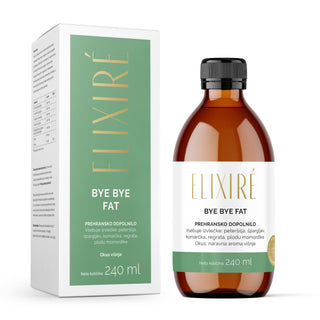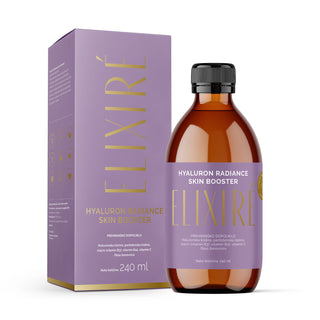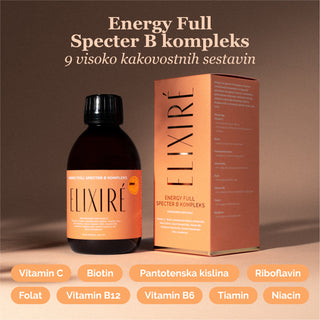Choline is an often overlooked but extremely important nutrient that is crucial for brain health, liver function and fat metabolismBecause the body only produces it in limited quantities, its sufficient intake through diet or dietary supplements is essential for optimal health.
Why is choline important?
Choline is involved in several vital processes, including:
- Acetylcholine synthesis – a neurotransmitter that affects memory, mood, and muscle control. (1*)
- Construction of cell membranes – as a component of phosphatidylcholine and sphingomyelin. (1*)
- Fat metabolism – Choline supports the transport and breakdown of fats in the liver and reduces lipid accumulation. (1*)
- Liver detoxification – its deficiency can lead to accumulation of fat in the liver (NAFLD). (2*)
- Brain development in the fetus – choline plays an important role in neurological development during pregnancy. (3*)
Sources of choline in the diet
Although it is found in a variety of foods, the largest sources of choline are of animal origin:
- Beef liver: 356 mg per 100 g
- Egg yolks: 147 mg per egg
- Soy: 107 mg per 100 g
- Chicken breast: 72 mg per 100 g
- Broccoli, Brussels sprouts, cauliflower: 30–60 mg per cup
Herbivores can also get choline from legumes, cruciferous vegetables, and nuts. (*1)
Who is most exposed to shortages?
Choline deficiency can lead to:
- Fatty liver (*2)
- Muscle weakness (*2)
- Cognitive problems – such as memory, concentration and mood (*2)
Special attention should be paid to:
- Pregnant and breastfeeding mothers
- Older
- Invegans and vegetarians
Recommended daily intakes of choline (1*):
- Male (19+): 550 mg
- Women (19+): 425 mg
- Pregnant women: 450 mg
- Nursing mothers: 550 mg
Since most people do not reach the recommended intake through diet, supplementation is often a sensible choice.
Elixiré Bye Bye Fat: natural support for metabolism and liver
For anyone who wants to support fat metabolism, liver and balanced blood sugar levels, is here Elixiré Bye Bye Fat – liquid dietary supplement with cherry flavor.
Contains:
- Choline – for fat metabolism, homocysteine and liver function
- Chrome – to regulate normal blood glucose levels
- Natural plant extracts: parsley, asparagus, fennel, dandelion, bitter melon.
Elixiré Bye Bye Fat is:
- Liquid form – for fast and effective absorption
- Suitable for vegans
- Made in Slovenia according to GMP standards
Conclusion
Choline is essential for brain, liver and metabolic health. Since we often don't get enough of it, it's important to ensure adequate intake - either through a well-thought-out diet or through nutritional supplements such as Elixiré Bye Bye Fat.
Read more about the role of choline in fat metabolism here.
Literature (*)
1. Source: Choline Fact Sheet for Health Professionals (NIH - National Institutes of Health), https://ods.od.nih.gov/factsheets/Choline-HealthProfessional/
2. Source: Choline (Linus Pauling Institute, Micronutrient Information Center), https://lpi.oregonstate.edu/mic/other-nutrients/choline
3. Source: Choline: an essential nutrient for public health (SH Zeisel, KA da Costa), https://pubmed.ncbi.nlm.nih.gov/19906248/

















